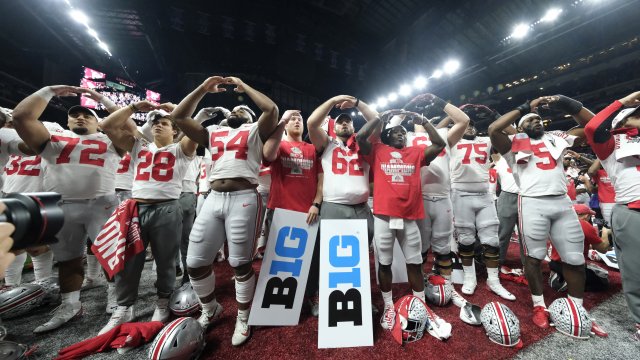[mkdf_dropcaps type=”normal” color=”#f55549″ background_color=””]T[/mkdf_dropcaps]
wo of the U.S. college football’s five power conferences, the Big Ten and Pac-12 have announced they have postponed their seasons due to the COVID-19 pandemic.
The move has been announced after days of speculation and meetings between the five conferences but has been met with criticism from some coaches within the conference, who asked for more time and threatened to look elsewhere to compete during the traditional autumn (fall) season.
Big Ten commissioner, Kevin Warren, said in a statement the season would be postponed at least until the U.S. spring.
“The mental and physical health and welfare of our student-athletes has been at the centre of every decision we have made regarding the ability to proceed forward,” Warren said.
“As time progressed and after hours of discussion with our Big Ten Task Force for Emerging Infectious Diseases and the Big Ten Sports Medicine Committee, it became abundantly clear that there was too much uncertainty regarding potential medical risks to allow our student-athletes to compete this fall,” he said.
Big Ten-member, University of Nebraska said in a statement said they would have preferred to play and are disappointed by the decision.
“We are very disappointed in the decision by the Big Ten Conference to postpone the fall football season, as we have been and continue to be ready to play,” the statement read.
The decisions from the Big Ten and Pac-12 come after the ‘Power Five’ conferences of the Big Ten, Big 12, Atlantic Coast Conference (ACC), Pac-12, and Southeastern Conference held a meeting to discuss whether it would be feasible to play the 2020 NCAA football season during the pandemic.
An ACC spokesperson told CBS Sports following the meeting that the conference is absolutely trying to move forward with their season.
“[Cancelling football] could happen for some leagues,” the spokesperson said.
“I’m not sure it’s going to happen in the Atlantic Coast Conference,” they said.
An ESPN report from July indicated that an outright cancellation of the NCAA college football season could see the U.S. higher education system lose a total of $4 billion in revenue.







